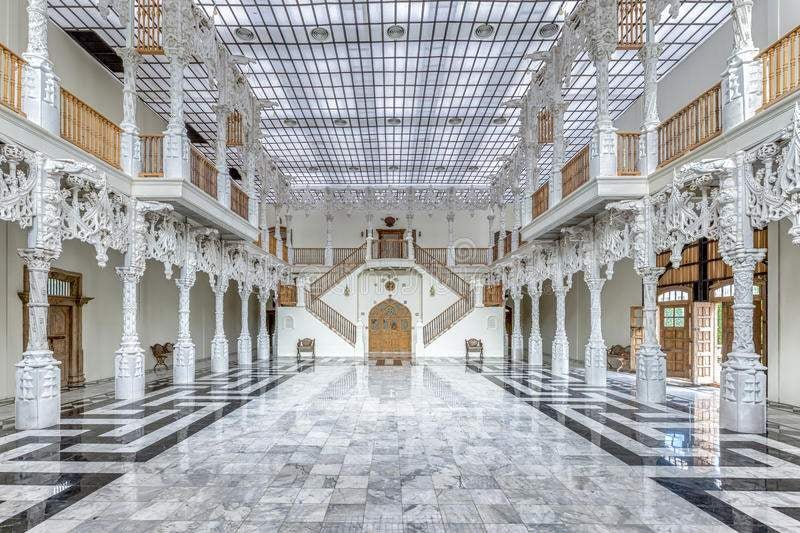
The comeback of New Classicism has given us masterpieces in marble, writes Clive Aslet
‘You don’t want to catch your finger in that,’ warned the architect Craig Hamilton as the stone door swung smoothly back. The weight must have been colossal. It was the sort of door that would have closed an Egyptian tomb, only this was a chapel in Oxfordshire, newly completed with marble statuary, marble columns and exquisite detail of every kind.
I mean really exquisite. An American architect was in tears from the beauty of the construction, which seemed to transcend the limitations of everyday life and reach a higher plane.
My role in the proceedings was more humdrum. I had to get everyone back on the bus. I was leading a tour of American classical architects, to show them the best New Classicism this country has to offer, and I had only a week to do it. When I started to write on this subject, in the late 1970s, a week would have seemed a long time; few architects beyond Raymond Erith and Francis Johnson designed classical buildings, and opportunities were modest. How different things are now. Classicism hasn’t swept the board: a glance at the London skyline tells you that. But the appetite is there among cognoscenti, and some Classical architects make a good living. You can see from the immaculate tailoring of their suits.
For me, this was a personal journey. Preparing a talk on how the phenomenon of New Classicism had emerged, I was forced to confront my early years. The 1970s: an era of such bleakness, after the oil crisis, that nobody wanted the fun of owning estates. Country houses were damned with the dire words ‘suitable for institutional use’.
The 1980s changed that. Taxes were lowered, Prince Charles tweaked the nose of the RIBA over carbuncles, the Loadsamoney generation overdosed on exuberance – which, in the case of Michael Heseltine, meant the building of Quinlan Terry summer houses and the planting of arboreta. The need to restore Uppark, Windsor Castle and Hampton Court after fires trained new craftsmen in historical techniques. Cracks were now opening in the Modernist hegemony. Space was opening for Classicists.
Oxford University still hasn’t got there. It rejected the winners of a competition – held among the Classicists favoured by the donor – for the Blavatnik School of Government, preferring a flying saucer designed by Herzog and De Meuron. But several Oxbridge colleges have commissioned Classicists. So have Eton College, various developers, and the National Defence and Rehabilitation Centre in the East Midlands.
Admittedly, most stops on our tour were private houses. Two things stood out. First, no expense had been spared. What looked like marble actually was marble; no scagliola
for today’s clients. Second, look at Easton Neston. When the contents were sold by Lord Hesketh in 2005, it seemed doomed. Who would want a Baroque pile, outside Towcester
of all places? Leon Max, owner of a west coast fashion brand, did, and he has restored and furnished it so impeccably that ‘wow’ (a word much heard on the tour) isn’t enough. It
has to be wow, wow, wow. Mine eyes have seen the glory.






